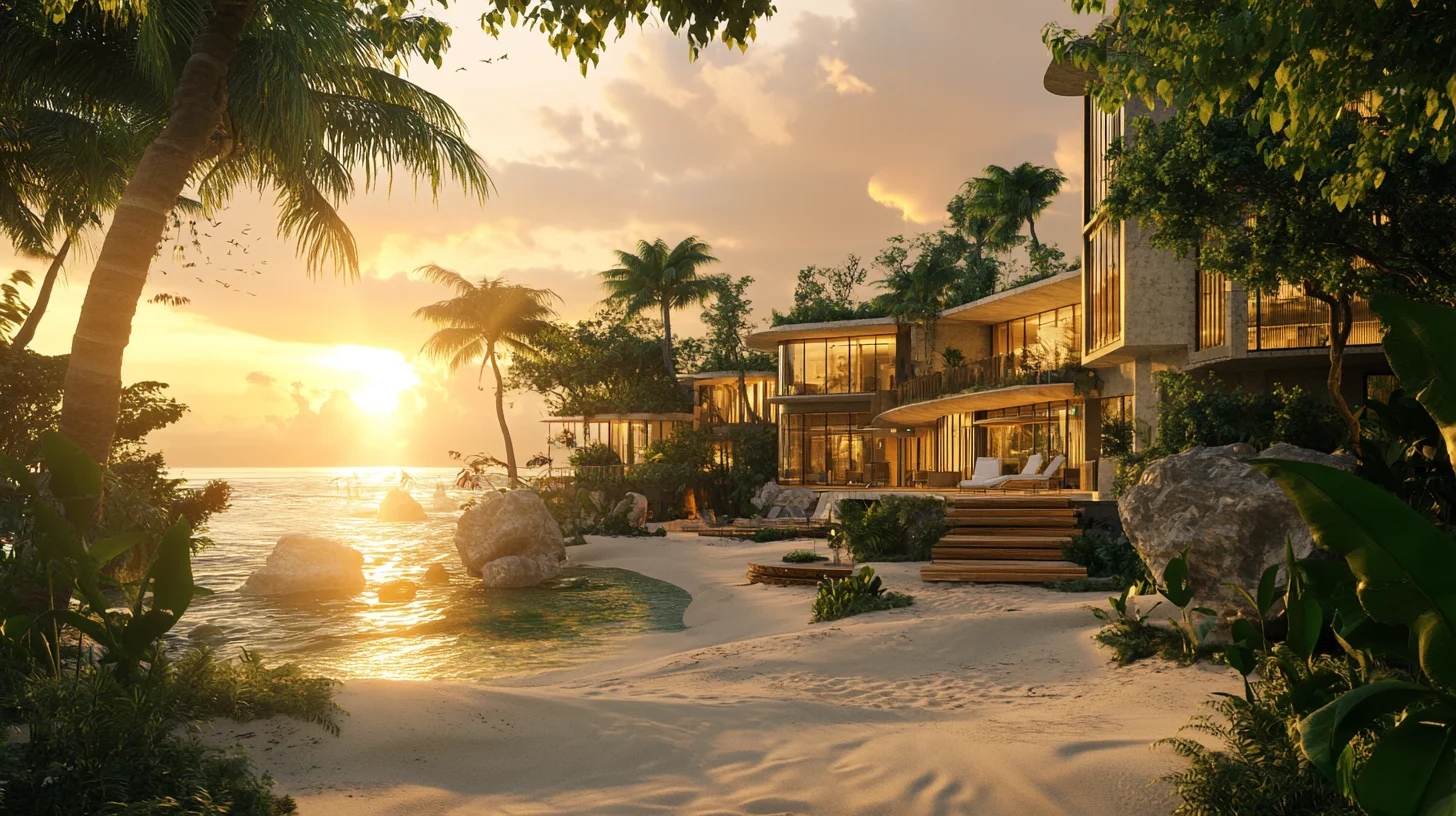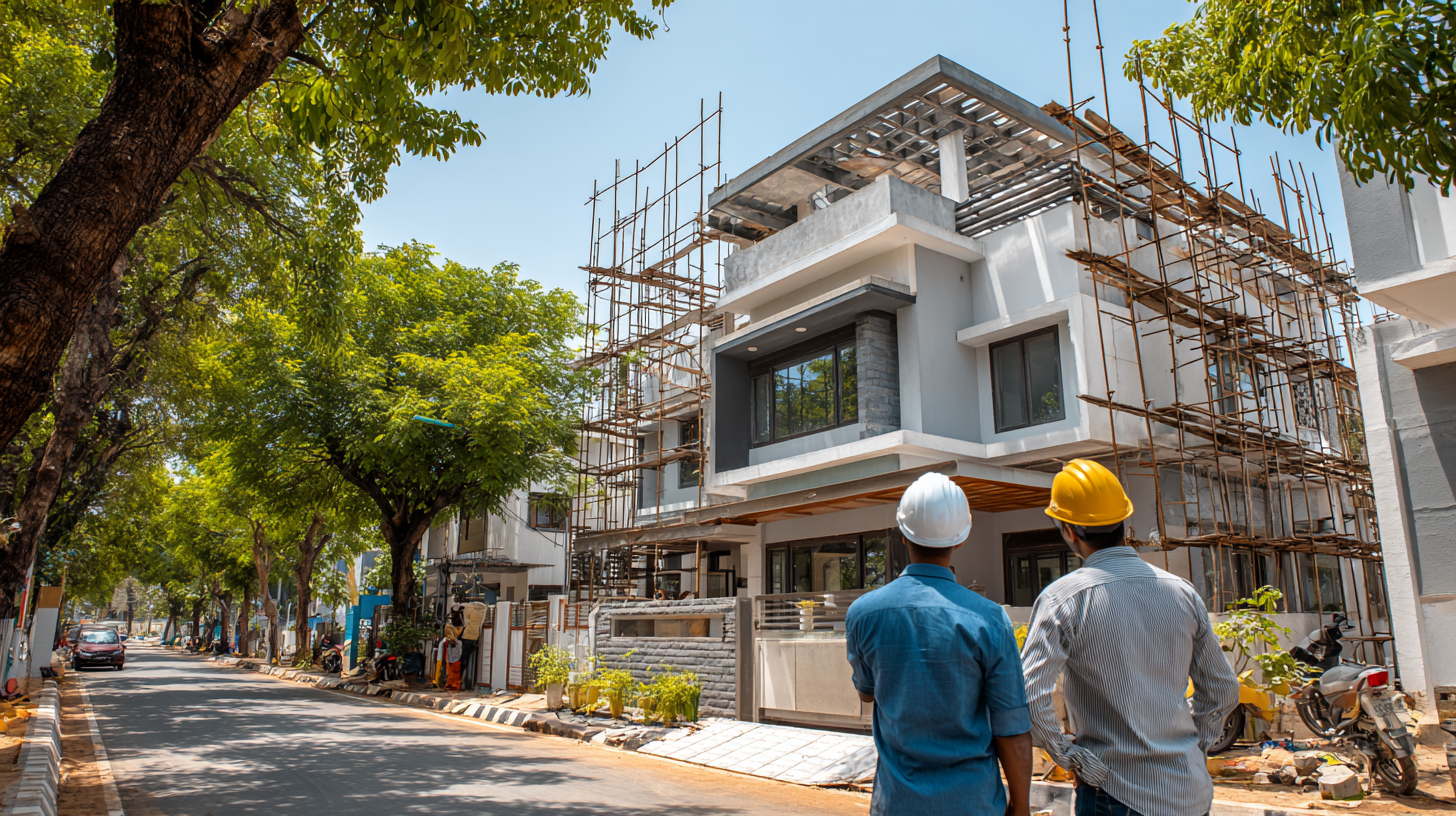
Top Trends in Hotel & Resort Construction for 2025
The global hospitality sector is set to experience a record-breaking boom in 2025, with increasing demand for unique, luxurious, and sustainable accommodations. Whether you’re a hotel owner, a resort developer, or a construction manager, staying ahead of emerging trends is critical to staying competitive. The hotels and resorts that thrive will be those that successfully merge cutting-edge technology, cultural identity, and sustainability into every aspect of their construction and design.
From eco-conscious building materials to AI-driven planning, we’ll explore the top eight trends shaping hotel and resort construction in 2025. If you’re ready to build a future-proof, guest-centric space, read on.
1. Sustainable & Eco-Friendly Construction
Environmental sustainability isn’t just a buzzword anymore; it’s a necessity in modern hotel and resort design. Guests are increasingly drawn to eco-friendly accommodations, creating an unwavering demand for green-certified hotels. But how can you meet these expectations without compromising on luxury? Here’s what’s trending:
Green Materials
Using recycled and locally sourced materials is gaining favor. Not only does it lower environmental impact, but it also weaves the surrounding culture into the architecture. For example, bamboo, reclaimed wood, and stone are popular materials for construction in eco-conscious resorts.
Renewable Energy
Solar panels integrated into sleek building designs are becoming standard for reducing energy usage. Rainwater harvesting setups, energy-efficient windows, and LED lighting show guests your property values sustainability.
Smart Eco-Friendly Designs
Resorts are focusing on energy-efficient designs where natural sunlight reduces lighting needs, and outdoor airflow minimizes reliance on air conditioning. Imagine floor-to-ceiling glass panels that open to lush, shaded greenery. These designs don’t just look stunning; they save thousands in energy costs.
Pro Tip
Partner with a house construction company in Chennai or similar eco-focused firms in your region who specialize in sustainable resort architecture.
2. Smart Technology Integration
Technology continues to revolutionize how hotels and resorts cater to their guests. The year 2025 will see hospitality spaces leveraging IoT (Internet of Things) and AI (Artificial Intelligence) to impress and simplify.
IoT-Powered Rooms
Think advanced rooms where lighting, temperature, and even curtains adjust automatically based on guest preferences. Smart rooms also include voice-controlled systems through popular platforms (like Alexa or Google Assistant) to add a futuristic flair.
Seamless Operations and AI Concierge
AI-enabled concierge services ensure every guest request is handled immediately, while back-end AI platforms analyze room occupancy patterns to boost efficiency. For example, predictive analytics monitors energy usage, ensuring unnecessary heating or lighting is avoided.
Benefits for Guests and Hotels
For guests, smart tech enhances comfort and personalization. On the operational side, these innovations lower energy bills, streamline housekeeping, and reduce maintenance.
3. Modular & Prefabricated Construction
If you’ve dived into recent mega-project architectures or viewed building designs online, you may have noticed the rising popularity of prefabricated construction.
Why Modular Construction Works
Prefab and modular designs allow hotel developers to build off-site and quickly assemble on location, saving weeks—even months—in construction timelines. They’re also cost-effective, often requiring fewer workers onsite and creating less waste.
Examples in Action
Take the Arctic Bath Hotel in Sweden, built using prefabricated modules to float on icy Scandinavia waters. Or the sleek, modular pod hotels like YOTEL in airport terminals. These futuristic builds are revolutionizing the hotel landscape.
4. Wellness-Centered Design
Today’s travelers prioritize their mental and physical health more than ever before. Hotels and resorts that cater to well-being will undoubtedly gain an edge.
Features Prioritizing Relaxation
Designs now focus on integrating health into every aspect of a stay. From in-room spa features to yoga decks overlooking serene landscapes, well-being design elements are becoming essential.
Biophilic Approach
Bringing the outdoors in is a trend that’s here to stay. Incorporating greenery, natural light, and flowing water features into resort interiors helps promote tranquility, making guests feel relaxed upon arrival.
5. Local Culture and Identity in Design
Cultural immersion is no longer a luxury; it’s expected. Hotels that succeed in 2025 will reflect and honor their location’s unique heritage, offering guests the opportunity to experience something truly special.
Regional Architecture
Resorts are increasingly integrating design elements that reflect local history and art. Whether it’s terracotta roofs for a Mediterranean feel or hand-woven fabrics in interior decor, aligning with cultural traditions enhances a guest’s experience.
Examples of Success
Resorts like Amanpuri in Thailand focus on local architectural elements, blending seamlessly with their surroundings. Not only do guests love the authenticity, but it builds brand loyalty through meaningful cultural experiences.
6. AI-Powered Planning & Design
AI is no longer relegated to the tech sector; it’s shaping construction and architectural planning in profound ways.
How AI Helps Construction
AI systems now assist architects with space optimization, helping design rooms that maximize space without compromising guest comfort or design aesthetics. Predictive modeling also helps forecast project timelines, ensuring construction delays become a rarity.
Smart Pre-Launch Tools
AI chatbots and assistants even aid hotel owners and developers in pre-launch tasks such as permit approvals and scheduling inspections.
7. Flexible & Multi-Use Spaces
Flexibility is the name of the game in 2025. With remote work and hybrid events becoming the norm, the way hotels manage communal spaces is shifting.
Multi-Purpose Designs
Conference rooms that easily transform into wedding venues or co-working spaces with built-in modular furniture accommodate changing guest needs. Expect more hotels to feature adaptable areas to cater to this demand.
8. Safety, Hygiene & Touchless Design
Post-pandemic, safety and hygiene practices have become permanent priorities. Here’s how resorts are incorporating this trend architecturally:
Sanitation and Touchless Design
Resorts are adding UV disinfection technology to their HVAC systems and deploying antimicrobial materials like copper on high-touch surfaces. Touchless technology is everywhere, from check-ins to in-room ordering systems.
Visible Efforts Build Trust
Designing clear sanitization zones and maintaining hygiene can reassure guests, leading to superior satisfaction rates.
Build Hotels that Last a Lifetime
The construction trends shaping 2025 are extensive, yet they all share one goal—to create better, future-focused spaces for guests and operators alike. By staying competitive with sustainable practices, integrating smart tech, and valuing cultural identity, your hotel or resort can rise above the competition.
Looking to bring your vision to reality? Collaborate with a renowned house construction company in Chennai to help build tomorrow’s perfect getaway. Whether crafting an eco-conscious guesthouse or a high-tech resort, starting with cutting-edge expertise makes all the difference.



